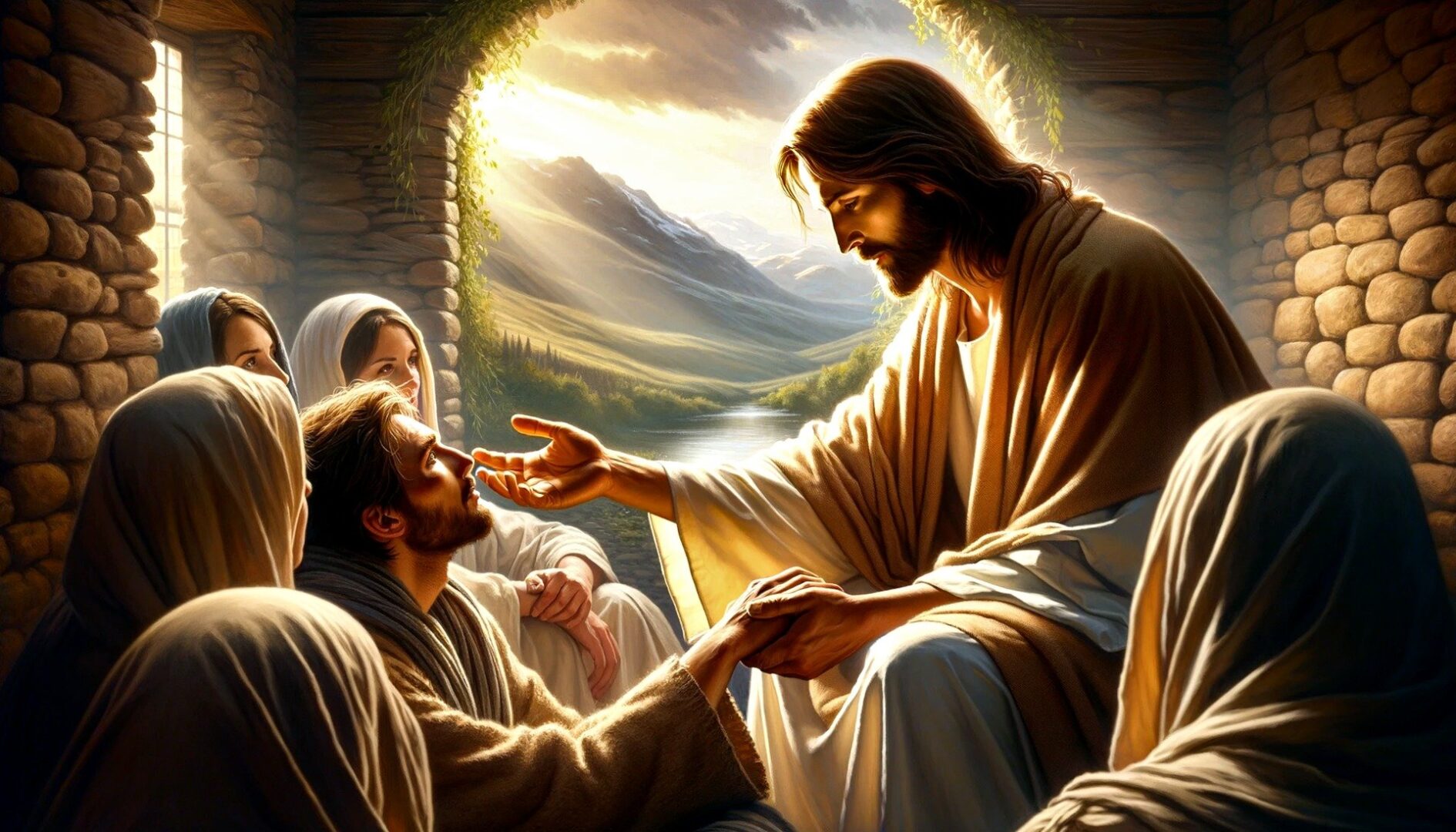
Tom Schmidt
The Gospel reading for this Sunday is not only the first miracle in John’s Gospel—it is also John’s first mention of Jesus’ mother. I used to find it odd that he addressed her as “Woman.” But in that time the word was more respectful; it could even be affectionate. Jesus does help as his mother requested, but he does so in a way that is a lesson about God’s love.
You have probably heard how the Jewish people in Jesus’ time performed purification rituals before eating anything. The cleansings were a sign that they wanted to be like God, completely free from sin. Eventually, it came to mean that you could not approach God until you cleansed yourself. Jesus could have made the wine in bottles or wineskins. But he used the “six stone water jars there for Jewish ceremonial washings” (John 2:6). That meant that once they were full of wine, no one could wash themselves from the jars. I wonder how many Pharisees flipped out when they saw that.
The point of this is that no one can cleanse themselves. We don’t purify ourselves in order to come to God—we come to God to be purified. God is the only one who can make us holy. God offers this to sinners especially, because sinners who know they need forgiveness are the only ones to receive it. God never forces mercy on anyone. It is offered to those who ask for it. the amount of wine symbolizes the extent of God’s mercy. As there was now more than enough wine for the wedding, God has more than enough mercy for those who need it. Wine is also a symbol of joy in the Old Testament. There is no greater joy than knowing that you have been forgiven by the Lord.
Fariseos enloquecidos
Tom Schmidt
La lectura del Evangelio de este domingo no es solo el primer milagro del Evangelio de Juan, sino también es la primera vez que Juan menciona la madre de Jesús. Antes me parecía extraño que se dirigiera a ella como “Mujer”, pero en esa época la palabra era más respetuosa; podía incluso ser cariñosa. Jesús ayuda como su madre le pidió, pero lo hace de una manera que es una lección sobre el amor de Dios.
Probablemente hayas oído cómo el pueblo judío en la época de Jesús realizaba rituales de purificación antes de comer cualquier cosa. Las limpiezas eran una señal de que querían ser como Dios, completamente libres de pecado. Con el tiempo, llegó a significar que no podías acercarte a Dios hasta que te purificaras. Jesús podría haber hecho el vino en botellas o en odres, pero utilizó las “seis tinajas de piedra, de unos cien litros cada una, que servían para las purificaciones de los judíos” (Juan 2,6). Eso significaba que una vez que estaban llenas de vino, nadie podía lavarse de las tinajas. Me pregunto cuántos fariseos se alocaron al ver eso.
El punto de esto es que nadie puede purificarse a sí mismo. No nos purificamos para ir a Dios, sino que vamos a Dios para ser purificados. Dios es el único que puede hacernos santos. Dios ofrece esto especialmente a los pecadores, porque los pecadores que saben que necesitan perdón son los únicos que lo reciben. Dios nunca obliga a nadie a tener misericordia. Se la ofrece a quienes la piden. La cantidad de vino simboliza la magnitud de la misericordia de Dios. Como ahora había vino más que suficiente para la boda, Dios tiene misericordia más que suficiente para quienes la necesitan. El vino también es un símbolo de alegría en el Antiguo Testamento. No hay alegría más grande que saber que el Señor te ha perdonado.